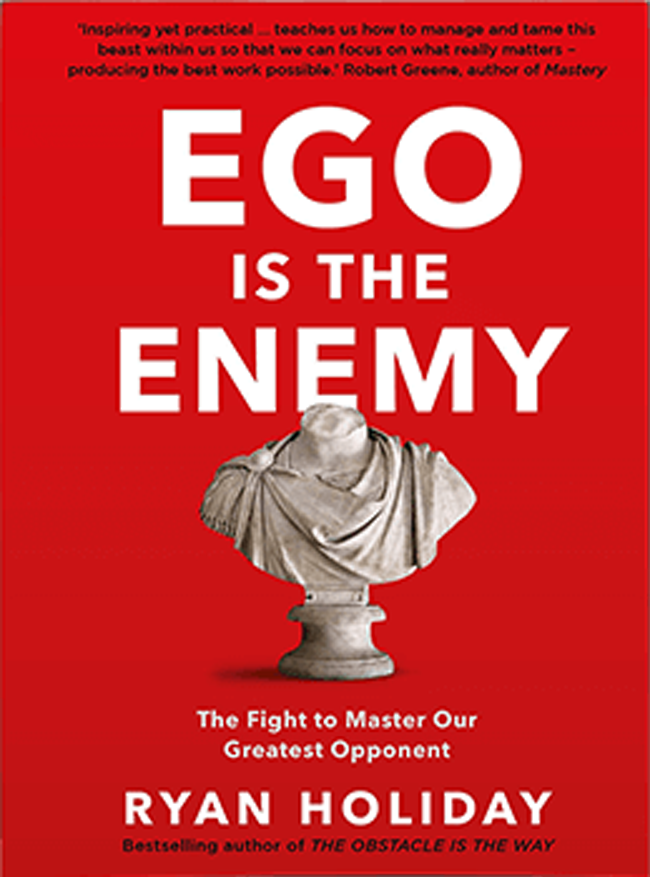-

 The Beautiful One whom I adore
The Beautiful One whom I adore
Has pitched His royal tent inside of you,
So I will always lean my heart
As close to your soul
As I can.
~ Hafiz
Sufi Books

Ego is the Enemy
The Naqshbandi’s maintain that mastery of the ego forms a significant part of the Sufi quest. ‘Ego is the Enemy – The Fight to Master Our Greatest Opponent’ by Ryan Holiday, is a very helpful book to aid this quest. Some quotes from the book are:-
– The aim of that structure is simple: to help you suppress ego early before bad habits take hold, to replicate the temptations of ego with humility and discipline when we experience success, and to cultivate strength and fortitude so that when fate turns against you, you’re not wrecked by failure. In short, it will help us be:
- Humble in our aspirations
- Gracious in our success
- Resilient in our failures
– With accomplishment comes a growing pressure to pretend that we know more than we do. To pretend we already know everything. ‘Scientia infla’ (knowledge puffs up). That’s the worry and the risk – thinking that we’re set and secure, when in reality understanding and mastery is a fluid, continual process.
– Each of us faces a threat as we pursue our craft. Like sirens on the rocks, ego sings a soothing, validating song – which can lead to a wreck. The second we let the ego tell us we have graduated, learning grinds to a halt . . . always stay a student. As in, it never ends.
– The astrophysicist Neil deGrasse Tyson described this duality well – it’s possible to bask in both your relevance and irrelevance to the cosmos. As he says, “When I look up in the universe, I know I’m small, but I’m also big. I’m big because I’m connected to the universe and the universe is connected to me.”
We just can’t forget which is bigger and which has been here longer.
– Creativity is a matter of receptiveness and recognition. This cannot happen if you’re convinced the world revolves around you.
By removing the ego – even temporarily – we can access what’s left standing in relief. By widening our perspective, more comes into view.
– If success is ego intoxication, then failure can be a devastating ego blow – turning slips into falls and little troubles into great unravellings. If ego is often just a nasty side effect of great success, it can be fatal during failure.
– Absorbing negative feedback, ego says: I knew you couldn’t do it. Why did you even try? It claims: This isn’t worth it. This isn’t fair. This is somebody else’s problem. Why don’t you come up with a good excuse and wash your hands of this? It tells us we shouldn’t have to put up with this. I tells us that we’re not the problem.
That is, it adds self-injury to every injury you experience.
To Paraphrase Epicurus, the narcissistically inclined live in an ‘unwalled city’. A fragile sense of self is constantly under threat.
– “Ambition”, Marcus Aurelius reminded himself, “means tying your well-being to what other people say or do . . . Sanity means tying it to your own actions.”
– Reflecting on what went well or how well or how amazing we are doesn’t get us anywhere, except maybe to where we are right now. But we want to go further, we want more, we want to continue to improve.
Ego blocks that, so we subsume it and smash it with continually higher standards. Not that we are endlessly pursuing more, as if we’re racked with greed, but instead, we’re inching our way toward real improvement, with discipline rather than disposition.
– Meanwhile, love is right there. Egoless, open, positive, vulnerable, peaceful, and productive.
– . . . training was like sweeping the floor. Just because we’ve done it once, doesn’t mean the floor is clean forever. Every day the dust comes back. Every day we must sweep the floor.
The same is true for ego. You would be stunned at what kind of damage dust and dirt can do over time. And how quickly it accumulates and becomes utterly unmanageable.
– Every day for the rest of your lives you will find yourself in one of three phases: aspiration, success, failure. You will battle the ego in each of them. You will make mistakes in each of them.
You must sweep the floor every minute of the day. And then sweep again.
